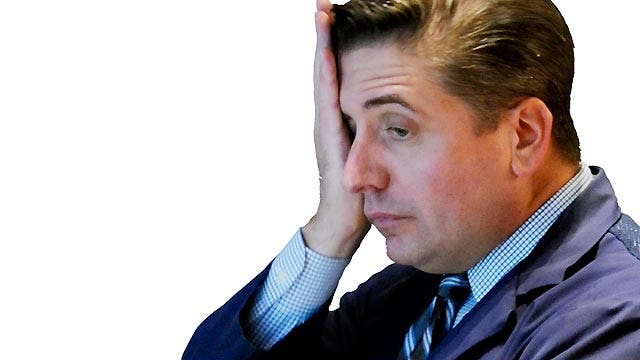Stress may be ‘caught’ from social media, study says
Kyle Rothenberg reports how a new study shows social media can increase our stress levels and “second-hand stress” is become a reality in the real world
Social media users beware — connecting with people online could be damaging to your health.
A new Pew Research study found that using social media can increase stress levels because it exposes users to undesirable events, such as an acquaintance getting fired from work or a death affecting one’s social circle. However, researchers noted that there is no evidence that social media users feel more stressed than people who don’t use digital technologies.
Sudden emotional stresses - especially anger - can trigger heart attacks, arrhythmias and even sudden death, according to the American Psychological Association.
With nearly 75 percent of the online adult population on social media today, Pew Researchers are calling the increased stress “the cost of caring,” which they say is adding to a growing pool of evidence suggesting stress is contagious.
And stress levels are not just being influenced in the virtual world. In the real world, experts are calling contagious stress levels “second-hand stress.” According to stress management trainer Joe Robinson, founder of Optimal Performance Strategies, second-hand stress occurs because mirror neurons in our brains are “mirroring” what we see around us.
“It’s like when you’re hanging out with somebody and that person starts yawning — within a couple seconds you’re doing the same thing,” said Robinson, who believes stress acts in the same way. “Mirror neurons are there because they’re a bonding tool. They’re supposed to help bring us together. But in the case of stress, well, they cause problems.”
Stress is dangerous and can suppress your immune system — causing heart attacks, back pain, even irritable bowels, Robinson said.
According to a 2013 work stress survey conducted with Everest College, more than 80 percent of workers say they are stressed at work.
Some experts believe part of stress at work comes from upper management and bosses who have the potential to destroy employee morale — depending on how things are communicated.
“When you’re treated by someone else in a respectful way — who’s your superior — most of the stressors that we’re talking about have a hard time coming into existence,” said Dr. Peter Schnall, professor of medicine at the University of California, Irvine’s Center for Occupational & Environmental Health.
And Schnall believes the more people we work with, the better.
“Social support is a very important buffer against stress,” he said. “When your supervisors and your co-workers are trying to all do things together, then you’re getting a lot of social support — and the job is less stressful.”









































